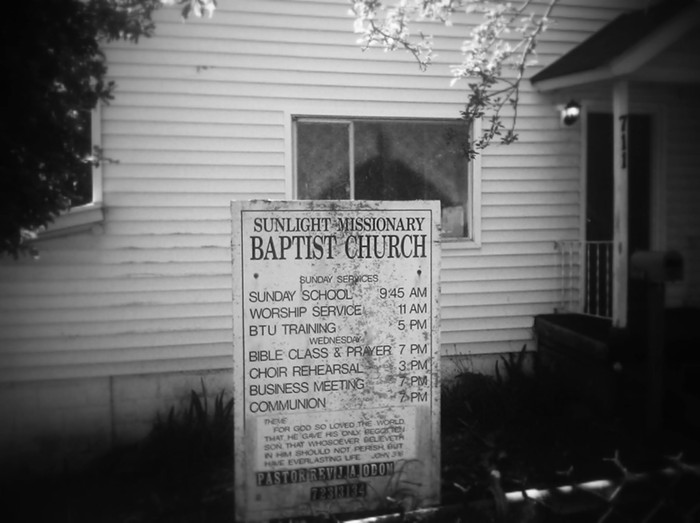
Last night the Seattle Times and regional funders coalition We Are In wrapped up its second evening of debates between Seattle and King County candidates. The conversations focused on the defining issue of the local elections, the homelessness crisis.
The first night, mayoral candidates Bruce Harrell and Lorena González squared up in that day's second forum on homelessness. The next night put candidates for King County Position 3, City Attorney, and City Council Position 9 in the hot seat.
Since the onset of the pandemic, homelessness has become more visible. A survey by researchers and students from Seattle Pacific University and the University of Washington found a 50% increase in the number of tents in the highest populated areas in the winter of 2019 to the summer of 2020. This summer, Seattlites could not go to a public park or a grocery store without being hassled by handsomely paid signature gatherers with magenta rainbows on their lanyards. Charter Amendment 29—which died, tried to revive itself, and died again—divided the city on how we should approach homelessness, and the local candidates reflect that division.
At their debate, the candidates for mayor didn’t have much new to say. Harrell and González had faced off earlier that day at a debate hosted by Resolution to End Homelessness, and they have both publicly outlined their plans for combating homelessness.
Harrell’s plan borrows from the approach of the now-defunct Charter Amendment 29. He wants to identify 2,000 units of emergency shelter in his first year, bring nonprofit partners to scale to provide individualized services that are accessible and culturally competent, and restore parks.
González, who sat on the other side of the Charter Amendment 29 fence, wants to create more housing by legalizing apartments in single-family zones, tax corporations to build more affordable housing, and create “individual service plans” for people sleeping outside so we can figure out who’s ready to come inside and then get them in quickly, according to her 100-day plan.
Both of these candidates have served as president of the council, and, as a quick walk downtown will reveal, neither solved homelessness during their tenure. With that less-than-ideal track record in mind, the moderator asked both candidates why Seattle should trust them to solve homelessness as mayor.
After often claiming to possess a direct, straight-talking campaign style, Harrell dodged the question by saying he didn’t want to play the blame game, as it doesn’t bring the unhoused inside. He does not blame any mayors for the current crisis. González had less of a problem assigning blame: she doesn’t think Seattle has had a mayor who is serious about homelessness, and she described a gridlock between the legislative and executive branches on the issue.
Perhaps the most telling moment arrived when the moderator asked the candidates who they planned to vote for in the City Attorney race: police and jail abolitionist Nicole Thomas-Kennedy, or the Obama-voter turned Trump-era Republican, Ann Davison? Recently, some Democrats have crossed party lines to rally around Davison.
González said she would vote for Thomas-Kennedy, despite some disagreement with her policies and sentiment. “I want to support another democratic woman,” she said.
Harrell said he’s in the undecided camp. “Both present opportunities and both present challenges,” but he is willing to work with either.
The more conservative candidates expressed the same caution when answering the reverse question.
There are many differences between the candidates running for City Attorney. Thomas-Kennedy has four years of experience in the courtroom as a public defender, and Davison hasn’t seen the inside of a courtroom since the Obama administration. Davison wants to lock up low-level offenders and use diversion where “appropriate,” and Thomas-Kennedy thinks routinely locking up people for committing crimes driven by poverty perpetuates the problem.
Last night the City Attorney candidates even had difficulty agreeing on what exactly the office does – Davison is focused on carrying out the law as legislated, and Thomas-Kennedy says “discretion is the duty.”
During the debate, Davison said Seattle was “worse than a Cambodian refugee camp,” called crime “a form of communication,” and refused to weigh in on city policy even in the abstract. Thomas-Kennedy said she wants to address homelessness by upholding the renter’s rights laws the city has passed and by not putting people in jail for crimes committed to sustain life.
When it came to sex work, Davison spoke only of protections from people who leave sex work after being trafficked. Thomas-Kennedy wants to decriminalize sex work altogether.
The moderator asked about their picks for mayor and for the open city council seat. Thomas-Kennedy reaffirmed her support for González and Nikkita Oliver without missing a beat. Davison took a more cautious approach.
“I don’t think it’s appropriate for me to say,” Davison said. “I would need to provide impartial legal advice to whoever is elected.”
Similarly, Oliver, an abolitionist themselves, sang Thomas-Kennedy’s praises when asked about their vote for City Attorney. Nelson kept her lips sealed.
“I’m not going there,” Nelson said. “The last thing I need to do is make more enemies."
Like the other pairs, Oliver and craft beer lobbyist Sara Nelson shared little common ground.
“The contrast is pretty clear between our two candidates,” Nelson said. “My opponent wants to abolish the police and I don’t. I am focused on pragmatic solutions that will help real people living real lives, struggling with real problems…”
As Oliver told the Stranger in an interview this summer, “abolishing the police,” for them, means: “Over the next few years, we need to continue to decrease the Seattle Police Department by 10 to 20%, continue to grow our in-community structures for responding to mental health crises, domestic violence, having access to safe houses and affordable housing, providing people with rental and food support."
Nelson doesn’t think the solution to homelessness is as “simple” as taxing business and the wealthy. She offered little about funding, as she does not believe the city should “grandstand” when a majority of the resources would be turned over to the King County regional authority anyway. She’s ready to “fall in step” as she said. Oliver is not.
“I value ensuring people have safety,” Oliver spoke directly to Nelson. “You value ensuring that the park is a place that you can comfortably go without seeing the crisis that Seattle has failed to respond to.”
It’s been clear for a while now, but two slates of candidates have formed in the city races. González and Oliver are backing Thomas-Kennedy, who is backing them right back. The three of them were on the same page about Charter Amendment 29. The others—all fans of sweeping people out of parks—kept quiet on whether they support one another.















